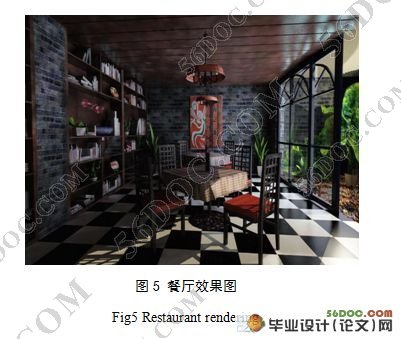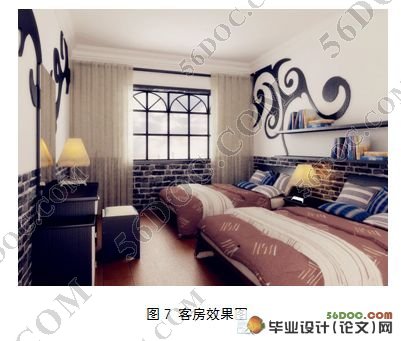湖南长沙湖湘驿国际青年旅馆室内设计
来源:wenku163.com 资料编号:WK1635441 资料等级:★★★★★ %E8%B5%84%E6%96%99%E7%BC%96%E5%8F%B7%EF%BC%9AWK1635441
资料介绍
摘 要:湖南长沙湖湘驿国际青年旅馆室内设计的设计理念是传播长沙文化,留住仅有的珍贵文化,设计的意义在于呼吁长沙人对历史文化遗产的保护。长沙本是一座历史名城,但今天的长沙已经被时尚而现代的城市化生活而渐渐改变,回头瞭望,那些源远流长的历史珍贵文化,已所剩无几,许多长沙的老公馆已被钢筋水泥式的毫无设计意义的高楼所代替。所以本案想通过设计一个民国特色的青年旅馆,融入长沙的文化元素,来提醒人们重视自己的文化。整体空间设计开放、简洁、舒适,色调具备层次感,是中西文化的一种融合设计,能够起到传播湖湘文化的作用。运用楚汉云纹、长沙窑瓷,以民国怀旧风格为主。
关键词:长沙;历史文化遗产;保护;青年旅馆
Interior design of Hunan Changsha Hunan post International Youth Hostel
Abstract: Hunan Changsha Hunan post international youth hotel interior design concept of design is communication culture of Changsha, retaining only treasures, is a calls for the design of Changsha people for protection of historical and cultural heritage. This is a historic city in Changsha, Changsha for today has been the fashion and the urbanization of modern life and gradually change, turn around and look-outs, the historical treasures of ancient times, is running out, many of the old residence of Changsha has been design of reinforced concrete without meaning high place. So want to design a characteristic of the Republic of China Youth Hostel, into the cultural elements of Changsha, to remind people to pay attention to their own culture. Open space design, simplicity, comfort, tonal sense, design is a fusion of Chinese
and Western culture, can play a role in dissemination of huxiang culture.
Keywords: Changsha; historical and cultural heritage; protect; youth hostel


目 录 6300字
摘要…………………………………………………………………………………………1
关键词………………………………………………………………………………………1
一、旅馆研究意义…………………………………………………………………………2
二、国内外研究现状………………………………………………………………………2
三、湖湘驿国际青年旅馆设计思路………………………………………………………3
(一)湖湘驿青年旅馆设计意义……………………………………………………3
(二)湖湘驿青年旅馆设计风格……………………………………………………3
(三)旅馆设计元素…………………………………………………………………4
(四)湖湘驿青年旅馆设计材质……………………………………………………4
四、湖湘驿青年旅馆设计方案……………………………………………………………5
(一)湖湘驿青年旅馆一层功能分析………………………………………………4
1、酒吧服务区与陶艺展示制作区…………………………………………5
2、娱乐区……………………………………………………………………6
3、阅读区、餐厅、庭院……………………………………………………6
(二)湖湘驿青年旅馆二、三层功能分析…………………………………………7
(三)湖湘驿青年旅馆四层功能分析………………………………………………7
五、结束语…………………………………………………………………………………8
参考文献……………………………………………………………………………………9
致谢…………………………………………………………………………………………10
|


